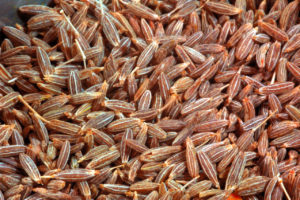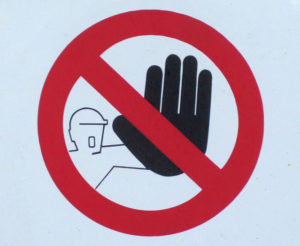Diets For Weight Loss
Seems like everyone today is weight conscious, and for a good reason. Some need to lose a little, and some a lot. Being overweight puts a strain on the heart and our vascular system. Eating a healthy diet plan is so important in maintaining a healthy weight and nutritious body. There are many diets for weight loss, but so many can be confusing. Which is the right one for me?
Obesity not only affects our heart, but almost every organ in our body.
A number of issues can result in excess weight. To mention a few are varicose-veins, shortness of breath, diabetes, poor circulation, lack of energy, and tiredness.
Let’s look at the characteristics of eating a healthy diet plan. We need to search for the best diet weight loss program.
Types Of Diets
There are a large range of diets. To list a few: low carb, low fat, vinegar, low protein, fasting diets, bone broth, and many others. Today, everyone seems to have a diet for you.
But do your research. Not all diets are equal. Which diet is right for you? Rather than seeking a harsh diet that will shed the pounds rapidly, look for one that is consistent in its track record to lose one to two pounds weekly.
Life Style Change
If we want a change, we have to change. Set new goals and a way of life to accomplish this.
Some realistic goals are:
To improve the health of my heart To feel better
To feel better
To get rid of diabetes
To lower my sugar levels
To have more energy
To have a better appearance
After setting your goals, research the most healthy and the most nutritious food diet that is available. Shop for the organic foods, if possible. Shop for fruits and vegetables that are rich in nutrition and fiber. If you eat more of certain healthy foods, you do not have to worry about counting calories.
Fiber
Look for a high fiber diet. It is recommended by the American Heart Association(AHA).
High blood pressure and high blood sugar, increase the risk of heart disease or diabetes.
Eat more whole grains, vegetables, and fruits.
Increasing dietary fiber does not mean taking daily fiber supplements.
Fast food is not a food that has a lot of fiber.
Fiber helps us to digest food. Being deficient in fiber can cause one to have illnesses like diverticulitis(inflammation in the digestive tract), constipation, bloating, or even hemorrhoids. Adding fiber too fast can cause bloating, diarrhea, or gas. Do this gradually.
Fiber is one of the most important carbohydrates for weight control.
Fiber keeps you full and satisfied for longer periods of time. It reduces your appetite by filling your stomach and by slowing down the rate at which sugars are absorbed into the bloodstream. Most Americans do not eat enough fiber. There are two types of fiber, soluble fiber and insoluble fiber. Both types of fiber will slow down the rate at which carbohydrates are digested and enter the bloodstream.
Soluble fiber dissolves in the intestines where insoluble fiber does not.
Insoluble fiber is found mainly in fruits, vegetables, whole grains, and wheat bread. Insoluble fiber will add bulk to the stool, relieving constipation, and cleaning the colon.
Soluble fiber, to name a few, are beans, peas, barley, oats, apples, and citrus foods. It will soak up and trap excessive cholesterol, toxins, and sugars, and excretes them in the stool. It will help to reduce your cholesterol and blood sugar.
A good diet is always accompanied by drinking good clean water, preferably filtered or distilled.
Extra Pounds At Any Age Or Gender
Man or woman, the older we get, the more we fight the battle of the bulge. We do not want to be too underweight because of malnutrition.
Being overweight in older adults can lead us to chronic diseases.
We become less active as we age, and it is much easier to gain unwanted pounds. Our metabolism begins to slow down, and without the proper exercise and eating healthy diet plan, health issues are likely to begin.
We start having joint and bone issues, and sometimes restrictive breathing. Our heart pulse is much faster with little exertion. As our metabolism is slowing down, we are still eating the same amount, and so our weight increases.
Starving Oneself
Avoid excessive restrictions of calorie intake. When the body does not get their daily calories, the brain tells the body to preserve your metabolism to conserve your energy.
The average man needs 2200 calories daily and the average woman needs 1800 calories daily minimum.
Many diets do not follow this regimen.
Learn To Say No
Just say no to tempting foods. Do not have sweets and junk foods lying around available at any time.
To many, these types of foods are gratifying and satisfying to the individual. One has to work at reducing or avoiding these temptations.
We have all been there. It is okay to reward yourself once in a while for sticking to your plan.
When having been on a diet and come off, it is easy to binge eat. That is why most diets do not work for the long term. Try eating natural foods instead of artificial foods, and you will be more successful.
Get A Plan
Overweight people who try to lose weight will probably live longer. Learning to eat healthier and controlling your appetite can be very beneficial.
Eat plenty of vegetables and fruit and whole grains. I prefer organic foods in order to eliminate any toxins, such as sprayed chemicals.
Reduce the intake of sweets, processed foods, and unhealthy fats.
Your diet should be nutritious to stay healthy, supplementing with vitamins and minerals.
Choose a diet plan that is not aggressively harsh, and you can enjoy the meals. Some diets make you feel like you are starving, and it is not palletable to the taste buds. It does not have to be that way.
Lose weight slowly, one to two pounds a week, reducing your calorie intake by 300-500 calories daily.
Risks Of Dieting
A familiar New Years resolution is to lose weight. This can be dangerous if we do not follow a good healthy and nutritious plan.
An improper diet that is not right for you could stimulate new health problems, and high blood pressure. We need to approach losing weight in a healthy way.
Dieting can actually cause weight gain by not consistently staying on the diet and binge eating, gaining weight and losing it over and over again.
Be sure to get a diet plan that will provide plenty of nutrition. This cannot be stressed enough.
Focus on weight-loss strategies that work for a lifetime.
When trying to lose weight, you must burn more calories than you take in. Watch your calories after reaching your desired weight, and weigh often.
Eat five or six times daily, consuming lesser amounts than you would if you sit down to a full meal. This will help to curb your hunger pains.
Anytime we make drastic changes to our eating habits such as dieting, it is advisable to consult a physician or nutritionist to make certain it is safe.
Do not make drastic changes in your diet, do it in moderation, and make sure it is a healthy plan.